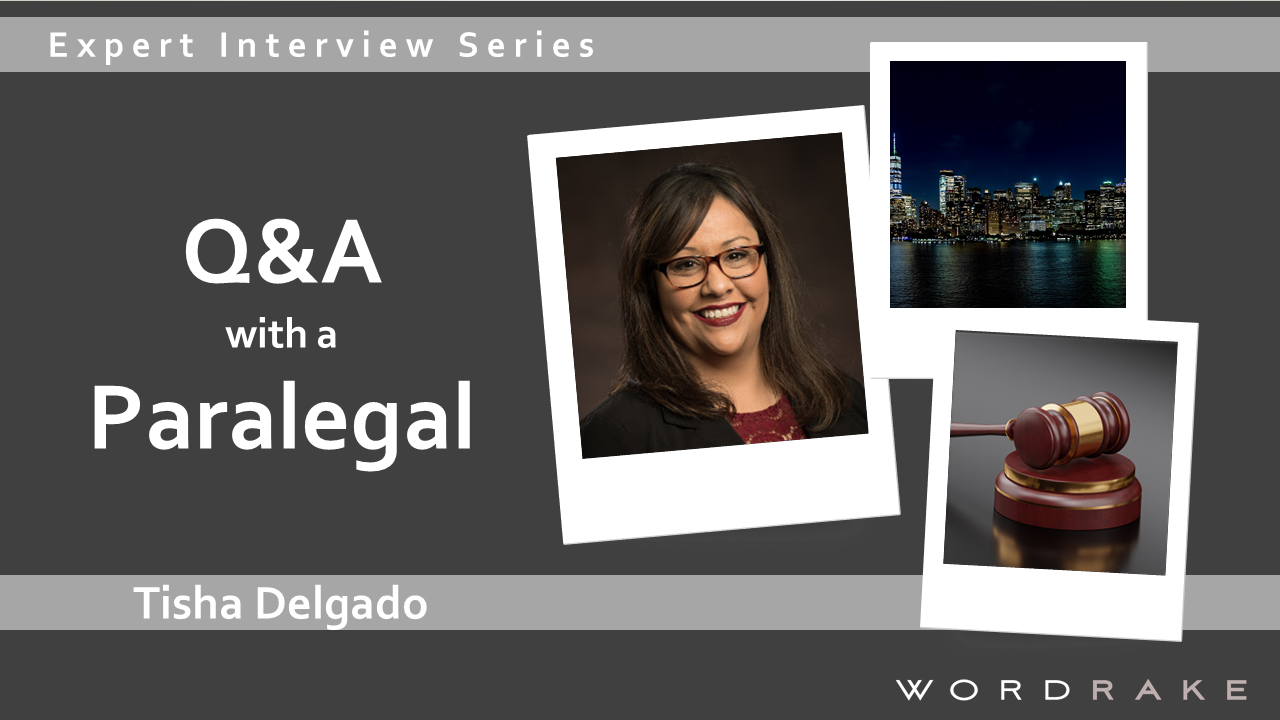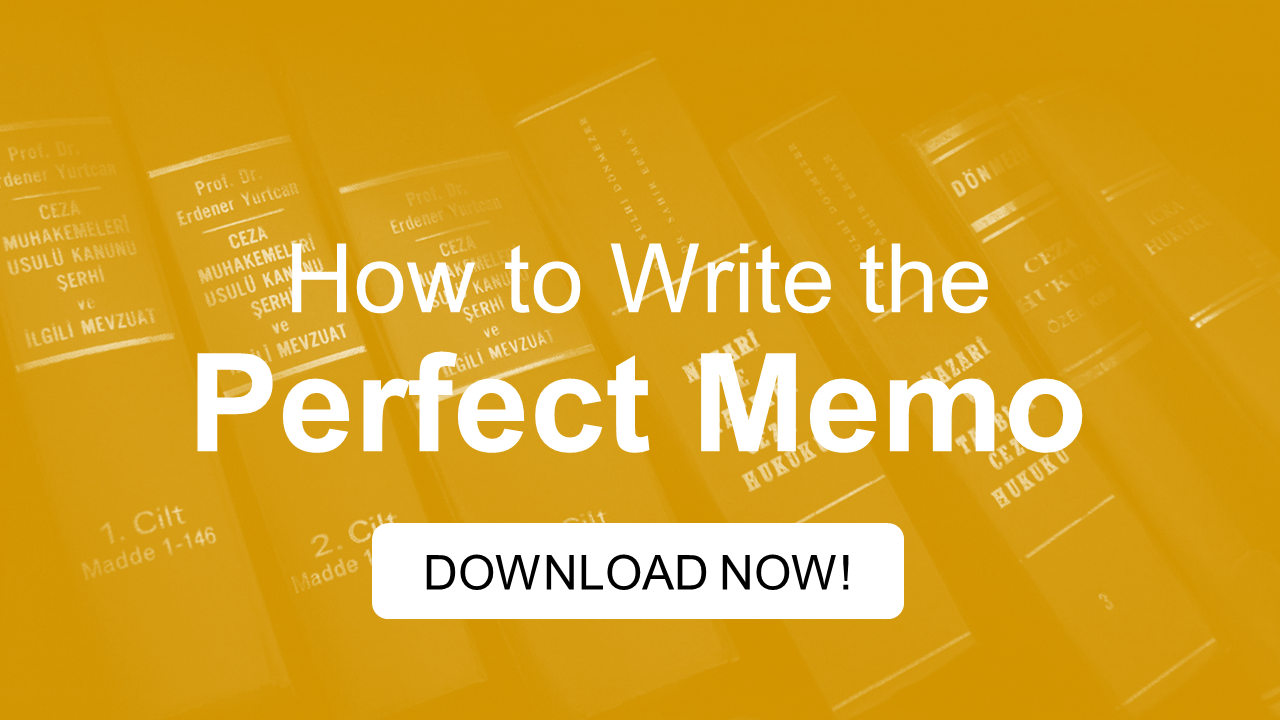Paralegals are essential to the legal practice because they have a practical understanding of how to complete each piece of the legal process and how each piece connects. All legal professionals can obtain better outcomes by working together and drawing on the unique skills each person brings to the team. In this interview, veteran paralegal Tisha Delgado, ACP® explains how lawyers can better work with paralegals and leverage their technical know-how for success. Read on to learn how the right combination of software, technology, and planning will enable a paralegal to work efficiently, which helps the law firm thrive.
What is your role and how did you get to where you are today?
I started my career as a litigation paralegal in El Paso, Texas over 24 years ago. My litigation role has grown and evolved to include e-discovery; litigation support; helping clients collect data from email providers, social media sites, and text messages; and keeping up with the latest software and technologies. I have developed training programs and trained staff and lawyers on e-filing, e-discovery workflows, document review and production, Bates numbering, redacting, and more.
I have always been an active member of various local and national paralegal associations. I am a founder and member of the Chicago Paralegal Association and am a member of NALA – The Paralegal Association.
I am a NALA Advanced Certified Paralegal. ACP® is a certification mark of NALA – The Paralegal Association. Its use is permitted only by those who have met and maintained national certification standards. I volunteer with Wills for Heroes and in my current role, I am a Senior Project Manager at JND Legal Administration, which works to design and execute class action settlements worth billions of dollars, affecting hundreds of millions of people.
What are the top 3 skills a paralegal must have for success?
Having a can-do attitude, a willingness to get things done and figure things out, and a growth mindset. Attitude is everything. I've seen lawyers bypass and outright refuse to work with a paralegal because of their attitude! Lawyers have so much on their work plate and a good, proactive, paralegal brings solutions—but this combination of skills is rare.
What is the biggest misconception that individuals have about paralegals?
That we only do legal research! We are problem solvers, master organizers and collectors of information, gatekeepers, document reviewers, and investigators.
How can technology help you in your paralegal work?
Having the right tools helps paralegals organize and complete work efficiently. Paralegals want to complete tasks quickly and need software programs and equipment that are multi-functional and easy-to-access.
Technology help can come in the form of office equipment such as a desk scanner/printer or dual monitors. Most paralegals, like lawyers, will organize their workspaces to be functional, so don’t waste time by placing your paralegal’s printer in a far-away location.
Paralegals will creatively use the basic programs they have access to, like Microsoft Office applications. It might take a little longer, but they become power users of Excel or Word to manage cases, keep track of deadlines, create timelines, create templates, and more.
Do paralegals have a duty of technology competence?
Yes! Because technology competence is a part of a lawyer's professional duties, it necessarily affects paralegals as well. It is vital for paralegals to keep abreast of the latest technologies and to understand how they work. This goes for mobile phones, text messaging, apps, and social media—Twitter, Facebook, Instagram, Snapchat, etc. We saw this firsthand when a Texas lawyer logged into a court hearing using Zoom with a filter that made him look like a kitten.
We also continue to see technology mishaps when documents are not properly redacted to keep confidential information confidential. Aside from the embarrassment, lawyers could face disciplinary action when documents are not properly redacted.
What should a new lawyer know about working with paralegals?
Communication and clear instructions are key to getting the results you want. A little time spent up front outlining your expectations will save you later frustration. Also, paralegal time is billable. That means a paralegal can complete client work at a lower billable hour, and the lawyer can focus and work on more complex matters.
What unique insights do paralegals have about how legal work is done that a lawyer probably wouldn’t have?
Some paralegals know more about procedures and processes. This was especially true in the early days of the pandemic. Judges were modifying their standing orders frequently changing or updating their procedures. Judges were shifting to Zoom court appearances and asking for electronic versions of courtesy copies. I know for us in the Chicago Paralegal Association, we were constantly checking in and sharing updates, new forms, and information as it was shared by court clerks and judges.
About Tisha Delgado
Tisha Delgado was a litigation/e-discovery paralegal for over 25 years. She is currently a Senior Project Manager at JND Legal Administration. JND Legal Administration has been named the nation’s #1 Class Action Claims Administrator by The National Law Journal for the third consecutive year. JND has received the additional distinction of being listed in the NLJ Hall of Fame for the second time.
About the Paralegal Interview Series
This interview is part of a collection of interviews about paralegal work. By producing this series, we hope to shine a light on some of the most important but often undervalued people in law: paralegals. Paralegals are key contributors to a high-value legal practice and are more effective when they’re empowered. Let’s start working better together.
Nearly everyone working in a law firm writes, and that writing must be done well. WordRake can help produce better, clearer documents in less time. WordRake is clear and concise editing software designed for people who work with confidential information. The software improves writing by simplifying and clarifying text, cutting legalese, and recommending plain English replacements. WordRake runs in Microsoft Word and Outlook, and its suggestions appear in the familiar track-changes style. Learn more about our paralegal program and our 2-week enterprise pilot. Or try an individual license of WordRake for free for 7 days.






